The Timeless Charm of Terracotta for Harmonious Gardens
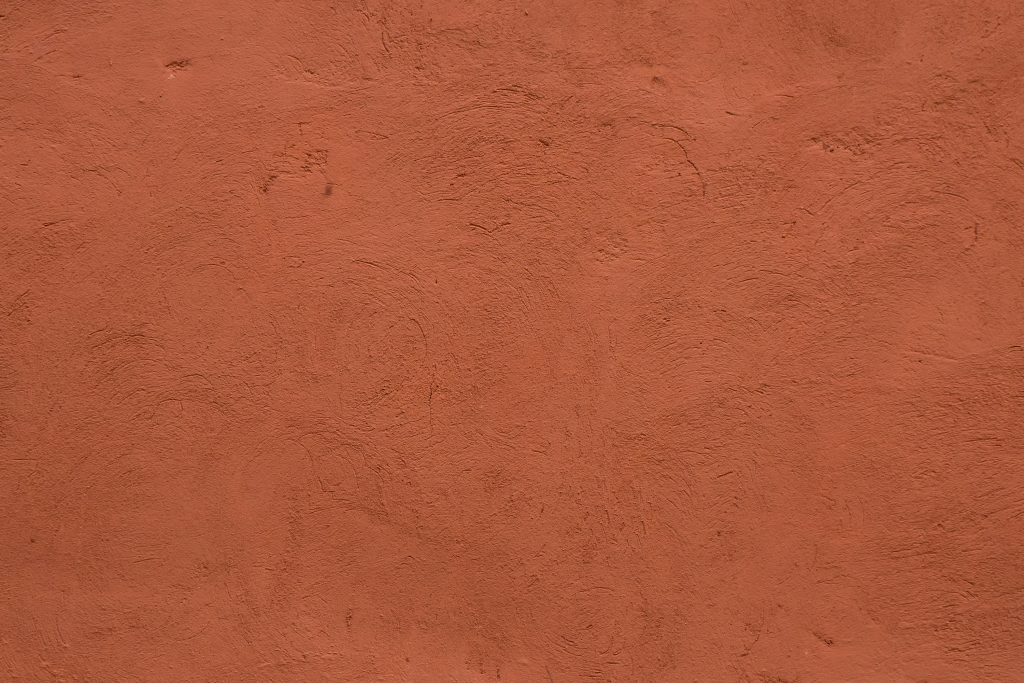
Terracotta has been a cornerstone of garden design for centuries, admired for its rich history and earthy beauty. Its warm, natural tones have graced everything from ancient Mediterranean courtyards to contemporary outdoor spaces. In this post, we'll explore how terracotta continues to hold its place in modern gardens, offering a timeless appeal that effortlessly blends with a variety of styles.
Terracotta’s Historical Significance

Derived from the Italian words for ‘baked earth’, terracotta has roots that trace back to some of the world’s oldest civilisations. Used extensively in ancient Greece, Rome, and across the Mediterranean, terracotta was prized for its durability and ease of shaping. It played a crucial role in both functional and decorative arts – serving as everything from roofing tiles and bricks to sculptures and pottery.
A Bridge Between Nature and Tradition
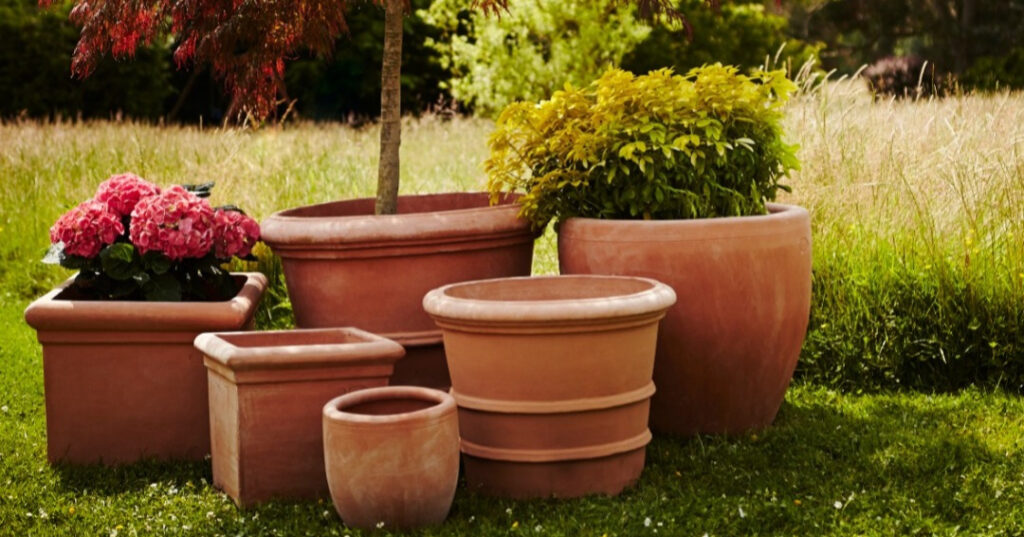
In these ancient cultures, terracotta was a symbol of connection to the earth. Its characteristic warm, reddish-brown hue echoed the natural landscapes, making it a fitting choice for outdoor use. Over centuries, terracotta has maintained its place in architecture and garden design, celebrated for its ability to age gracefully. It develops a patina over time, adding character and depth that only improves with age.
Even today, terracotta remains a staple in gardens worldwide. Its timeless appeal lies in its simplicity and connection to tradition, making it as relevant in modern settings as it was in the ancient world. This enduring material continues to bring warmth and authenticity to spaces, a testament to its lasting charm.
Terracotta’s Unreplicatable Aesthetic
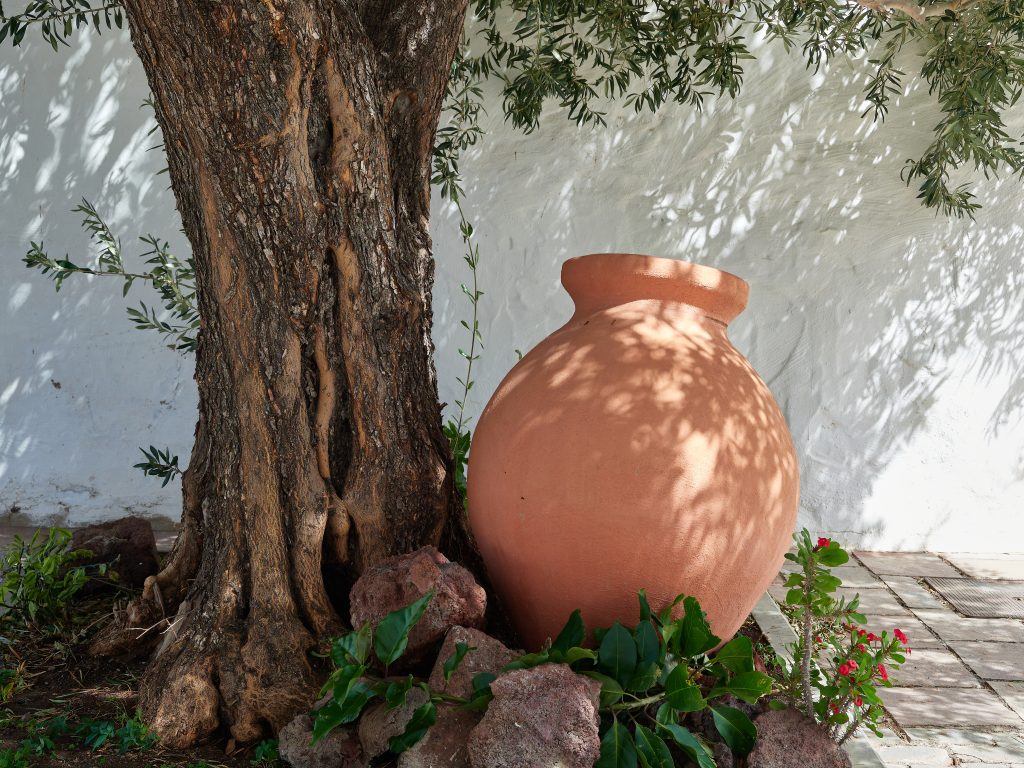
Terracotta’s visual appeal lies in its warm, earthy tones, which effortlessly blend into garden spaces. Its natural colour, ranging from soft ochres to deep burnt oranges, creates a grounding effect that complements a wide array of garden styles. Whether your garden leans towards the traditional or embraces a more contemporary design, terracotta’s versatility makes it a fitting choice.
For Traditional Gardens
In traditional gardens, terracotta planters and pots add a rustic charm that feels timeless. They evoke a sense of history and craftsmanship, bringing an element of the past into the present. The simplicity of terracotta also allows it to sit comfortably alongside stone pathways, wooden structures, and lush greenery, creating a balanced and cohesive look.
For Modern Gardens
In more modern gardens, terracotta can provide a striking contrast to sleek lines and minimalist designs. A terracotta vase or planter adds warmth to the cool tones of metal or concrete, softening the overall aesthetic. Its texture and organic feel can also break the monotony of modern materials, introducing a natural element that enriches the space.
The Unique Patina of Time
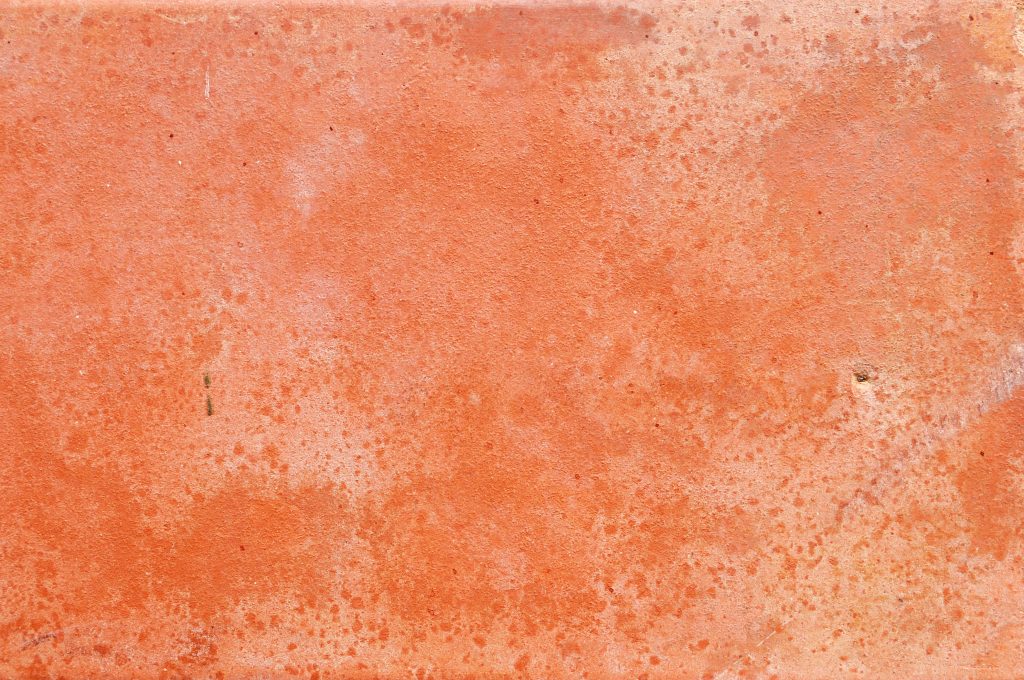
Terracotta is known for ageing gracefully where it’s placed. Over time, it develops a patina that enhances its character, making each piece unique. This ageing process adds depth to your garden, creating a lived-in, welcoming atmosphere – so whether used in large pots or as small accents, terracotta brings a touch of nature’s warmth and simplicity to any outdoor environment.
A Garden Feature That Stands the Test of Time
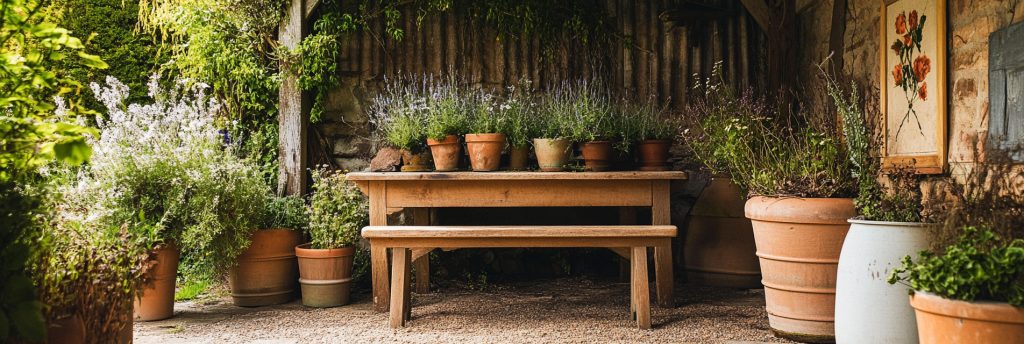
One of terracotta’s most significant advantages is its durability. Fired at high temperatures, terracotta is resilient and capable of withstanding the elements. Unlike plastic or other synthetic materials, terracotta doesn’t crack or degrade easily, making it ideal for year-round outdoor use.
Natural Weather Resistance
Terracotta holds up well against the changing seasons, from the heat of summer to the frost of winter. Its natural patina helps with this steadfast resistance, enhancing its appeal rather than detracting from it – and making terracotta a long-term investment in your garden’s aesthetic.
An Aid in Plant Care
As a pot or planter, terracotta’s breathable nature allows for better air circulation and moisture regulation within the soil. This permeability helps prevent waterlogging, a common issue in non-porous containers, and ensures that plant roots have access to the right amount of oxygen. As a result, terracotta planters can contribute to healthier, more robust plants.
How Terracotta Harmonises Garden Spaces
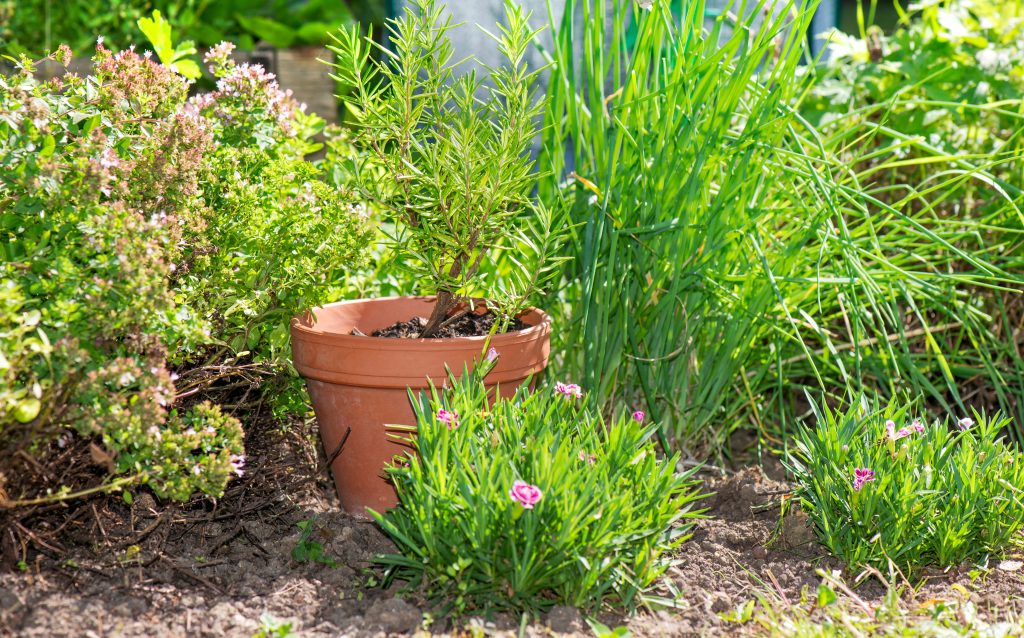
Terracotta is a versatile material that can help create a cohesive and harmonious garden space. Here’s how you could utilise it in your outdoor space:
Start by Considering Your Layout
Grouping pots of varying sizes and shapes together can create visual interest while maintaining a consistent theme. For example, placing a tall Tunisian Long Tom planter next to a shorter, wider pot like the Fresco Round Pot Planter adds depth and dimension to your garden display.
Combine Terracotta With Other Natural Materials
A terracotta planter set against a backdrop of weathered stone or nestled among wooden garden furniture can create a seamless blend of textures. This mix of materials reinforces a natural, organic feel, making the garden look thoughtfully curated rather than haphazard.
Add a Finishing Touch of Terracotta
To add extra detail and functionality, consider using terracotta accessories such as pot feet and saucers. These protect your pots and surfaces and complete the overall look. Terracotta pot feet, like the Terracini Scroll Pot Feet, can lift your planters slightly off the ground, improving drainage and adding a subtle decorative touch.
Saucers, such as the Classic Terracotta Plain Pot Saucer, catch excess water and help keep your garden tidy while maintaining aesthetic continuity.
Achieve the Perfect Balance With Terracotta Garden Features
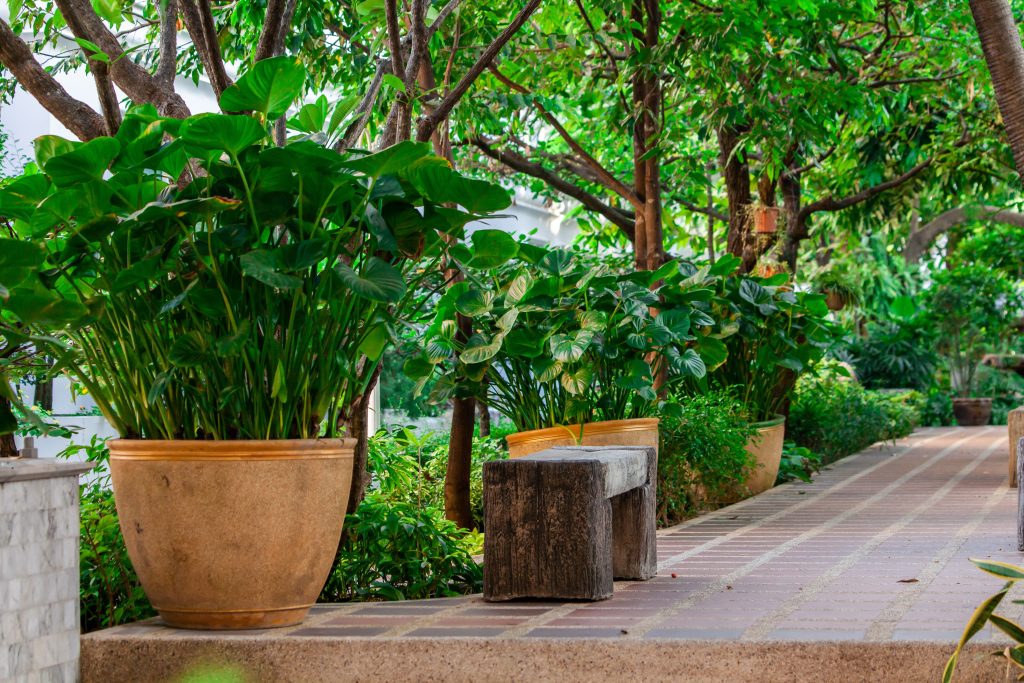
Terracotta offers a unique combination of timeless appeal, durability, and aesthetic versatility that makes it an ideal choice for any garden. If you're looking to bring warmth and harmony to your outdoor space, consider integrating terracotta into your outdoor redesign.
-
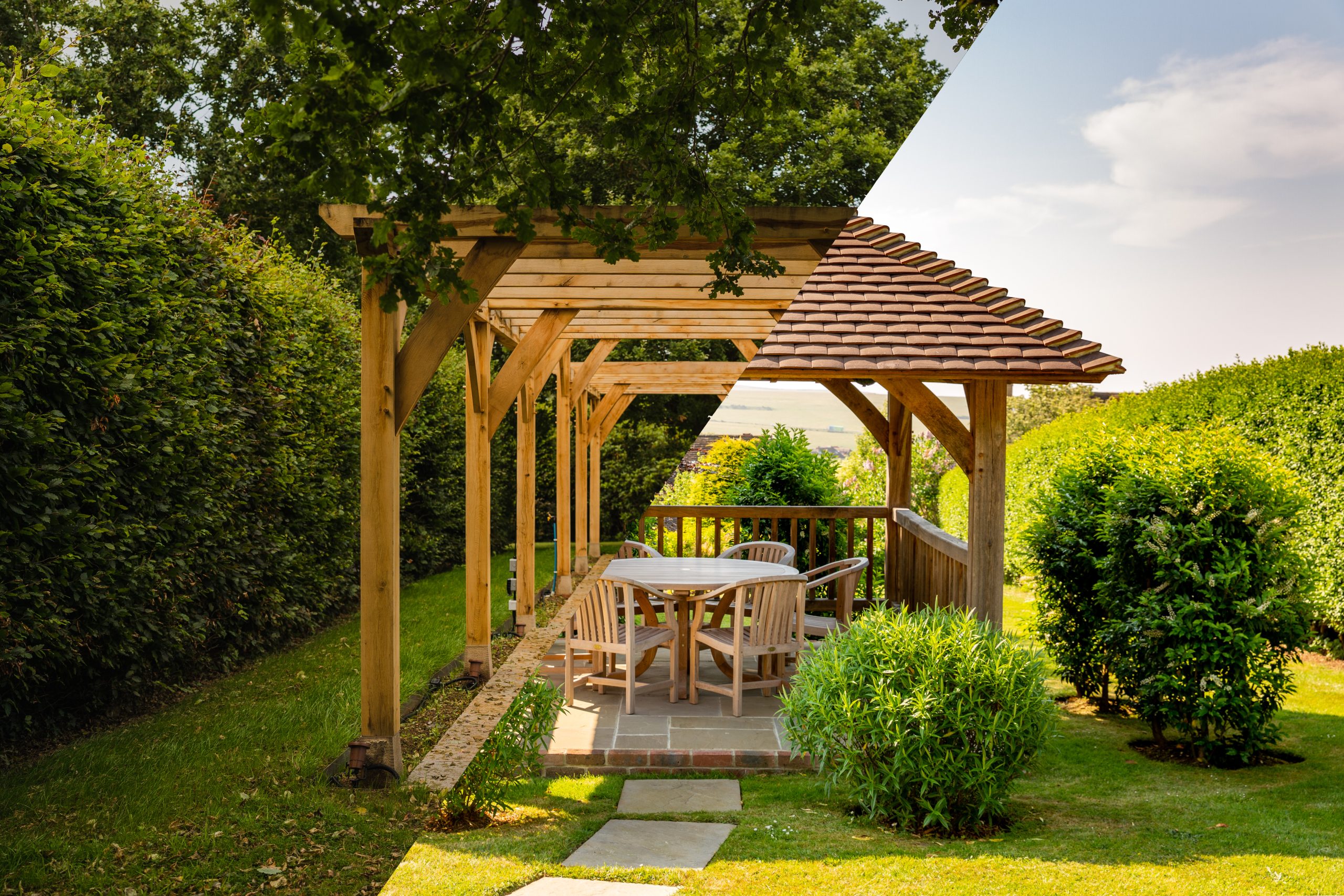
Gazebo or Pergola? How to Choose the Right Oak Structure for Your Garden
Read Article -
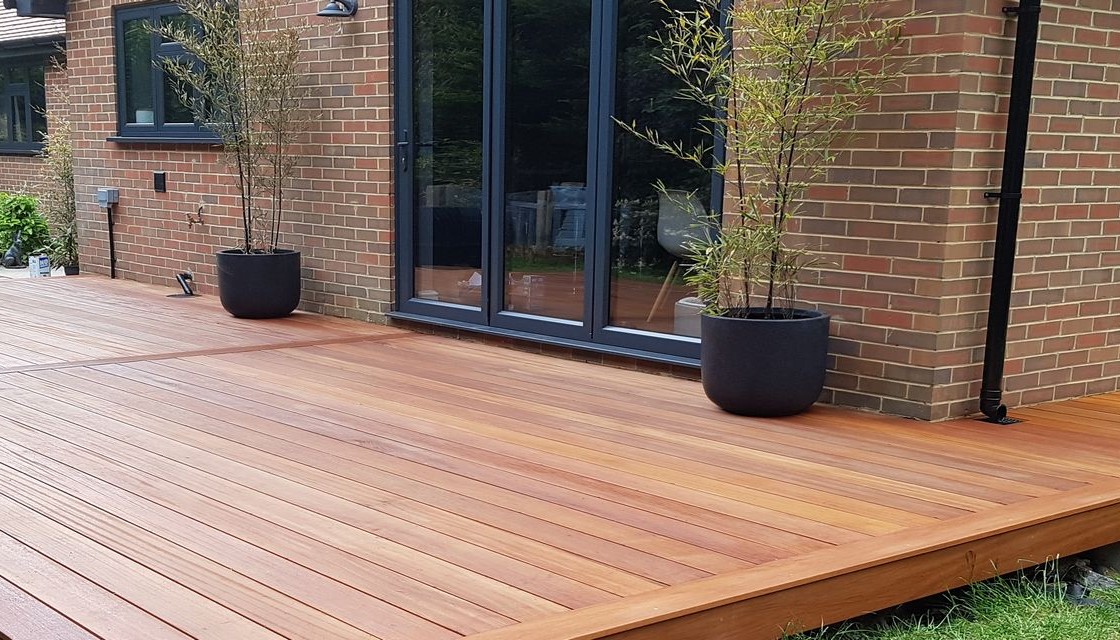
Tailored Options for Batten, Decking, and Cladding to Create Your Dream Garden
Read Article -

Choosing the Right Wooden Batten Cladding for Your Garden
Read Article -
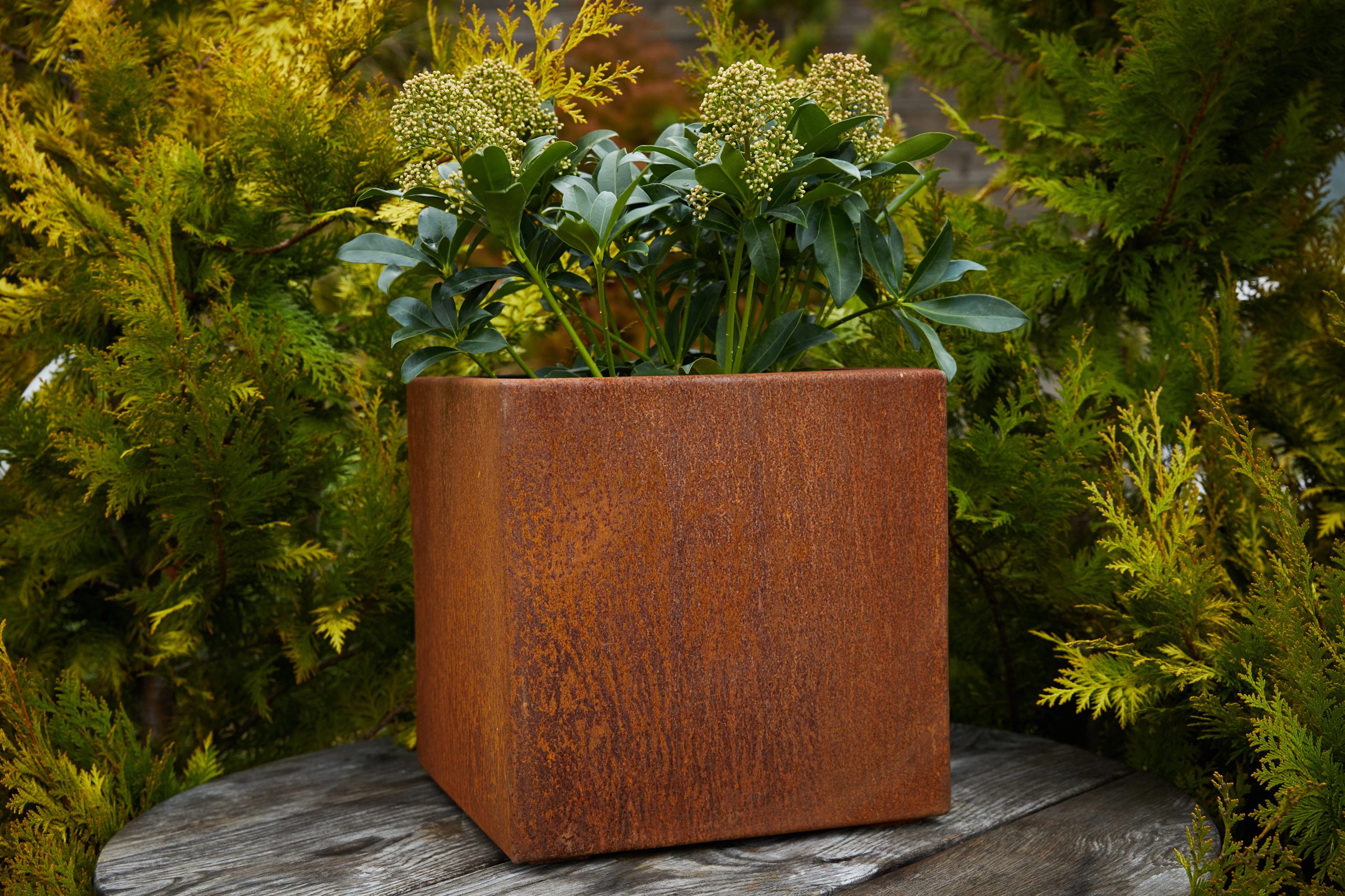
A Guide to Corten Steel Planters for Your Garden
Read Article
